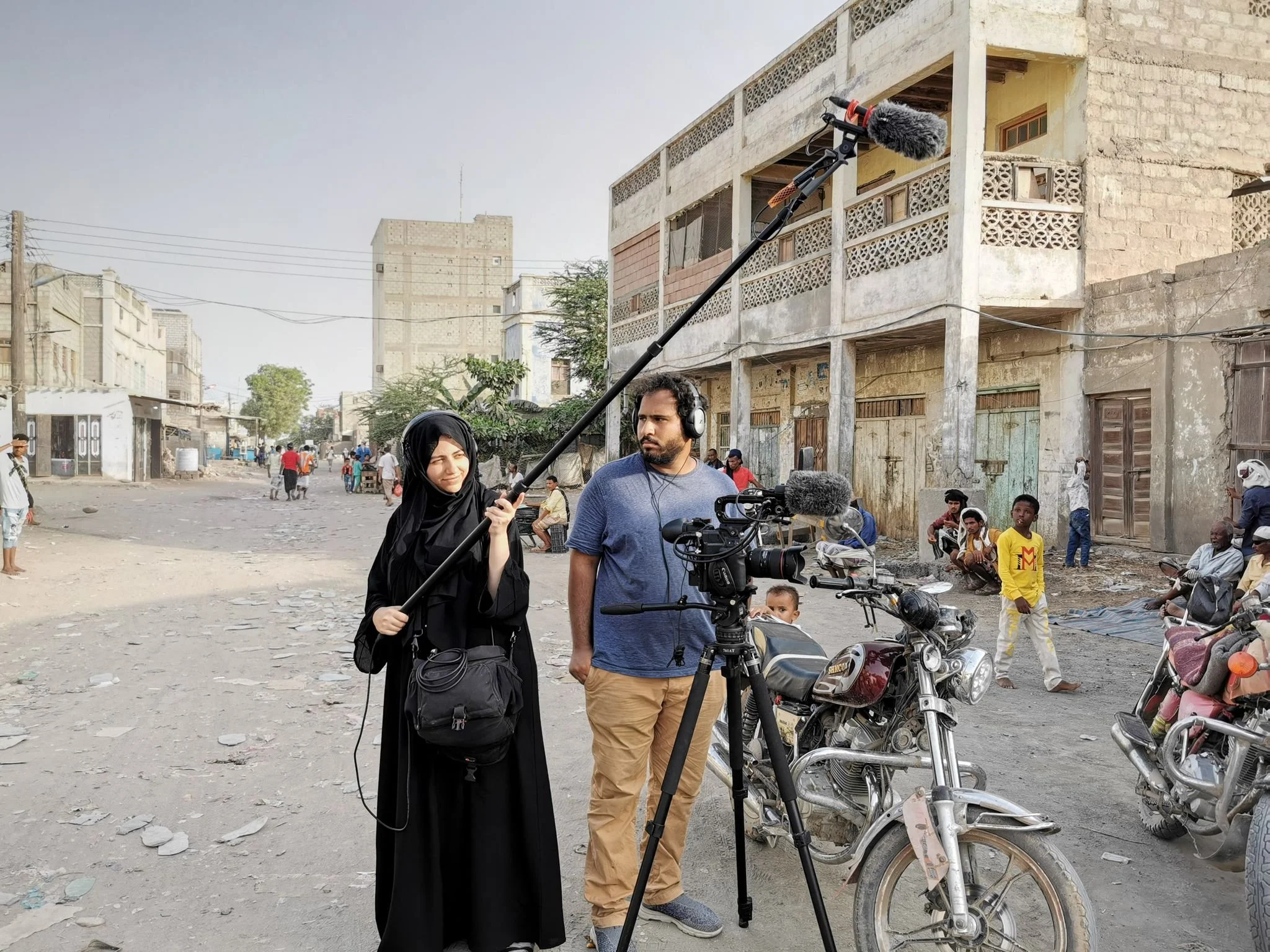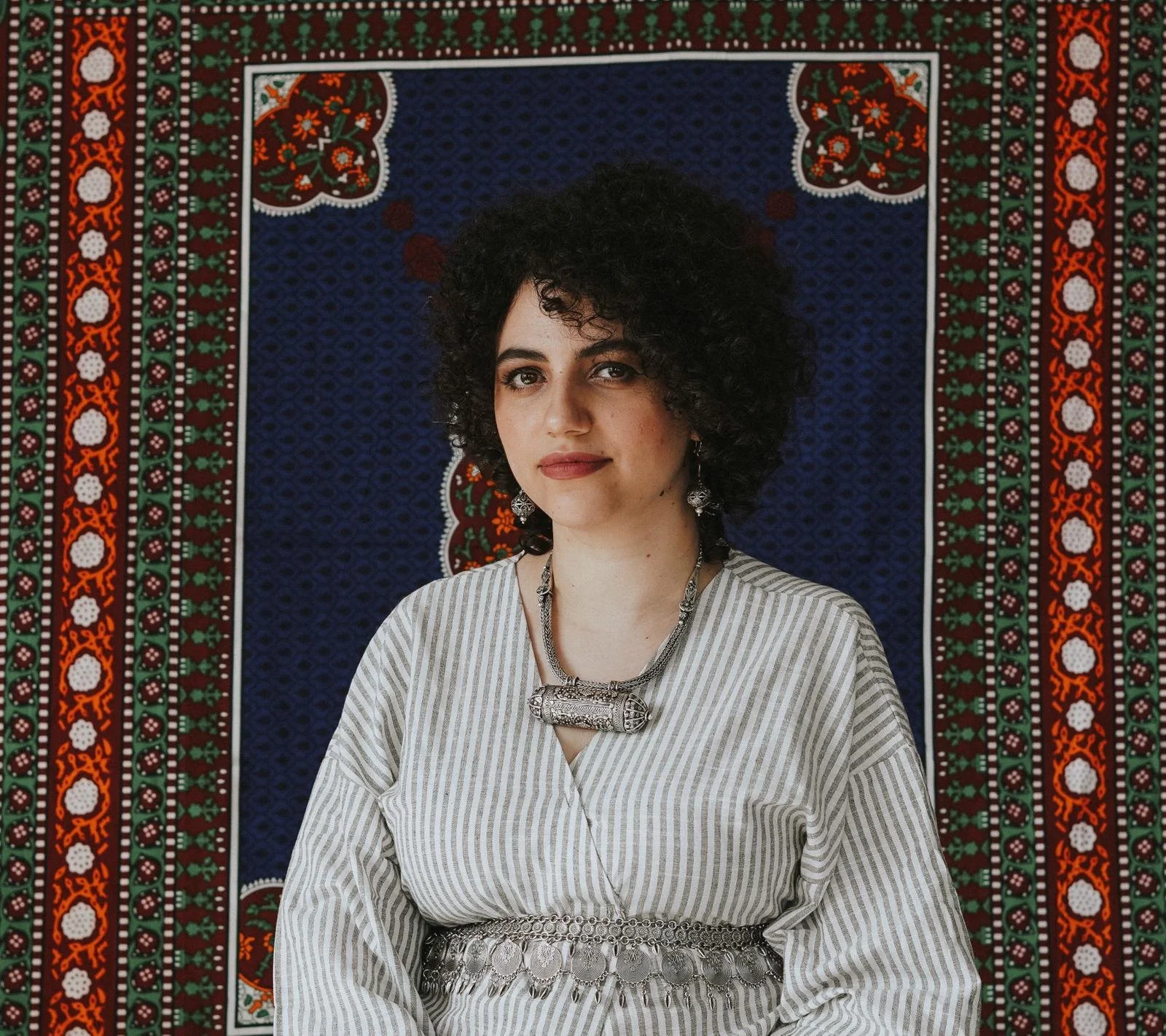Changing the narrative of despair: Q&A with Mariam Al-Dhubhani
Mariam has had a very busy week indeed. Between the 7-9th December, she delivered a speech at the 2021 WISE Summit, serving as a keynote speaker on the subject of education. To say this is a big deal would be an understatement - previous keynote speakers include Michelle Obama and Shakira (“yes, the Shakira!”). Yep, it’s fair to say that Mariam was in good company, but one look at her achievements makes it easy to see how she got there. We caught up with the award-winning documentary filmmaker to discuss themes like healing, the power of cinema, the importance of representation, and everything in between.
When did you first discover a love of media and filmmaking?
Film is the medium in which I can truly understand things, it really speaks to how I learn and interact with the world. At the beginning of the Arab uprising in 2011, a conflict that was also happening in Yemen, a few close friends and I decided to start leaning about film and worked on some short and commercial pieces. We were very passionate but lacked the education as it wasn’t available online in the same way it is now, so it was challenging. When the war unfolded in 2015, I left Yemen and went to Qatar. As soon as I got there, I made the decision to restart my education, building everything from scratch.
When did you realise you wanted to start making documentaries specifically and why did this genre appeal to you?
When I was studying at Northwestern University in 2018, I got the opportunity to take a workshop in documentary filmmaking at the Doha Film Institute (DFI). This workshop was led by the famous French Cambodian film maker Rithy Panh, so the whole thing was very exciting. Due to his own experiences in Cambodia, Rithy and I connected on so many levels. He knew that I understood pain. He wanted to help me visualise it, translate it into film and use cinema to not only heal myself but to spread awareness of what was happening in Yemen. This was my first real education related to cinema and I ended up directing a short doc, one that was very personal to me because it centred on my healing journey. I had to ensure that the film honoured everything I’d been through and was trying to move from. I shared the film at the Ajyal festival in Doha – it was actually the first Yemeni film to participate. It certainly won the reaction of the audience; they really understood what I’d been through. To me this demonstrated the power of cinema and how it can create connection, even between hundreds of strangers. Down the road, I’d love to explore fiction, but right now my major concentration is on documentaries, be it short form, long form, VR or even 360. It’s my calling.
You mentioned that film can be a tool for healing. How cathartic is the filmmaking process for you?
Whilst healing is a hugely important part, it’s equally important to create art in a way that honours the journey of life – the pain, the joy, the shifts and the changes. These elements build character and make us who we are. No one has a smooth ride and I believe the positive and negative are always intertwined. In this sense, life is all about equipping ourselves and those around us with tools that will help deal with hardship, not only to cope with challenging times but to learn as much as possible in the process. There’s always room for growth.
How important is representation in film?
It’s absolutely crucial to decolonise how films are made, especially documentaries. One of the things I’m pushing for is the training of young people from different cities in Yemen and other conflict areas so they have the resources and education to share their stories. Each city, place and person is unique – all of these voices are valid and need to be heard and no one can tell your story like you can. Authenticity and strength comes from within, which doesn’t mean collaboration is unnecessary, but we must always keep our uniqueness.
You speak openly about your passion to change the narrative on Yemen. What can creatives do to help shift the focus?
In the mainstream media, Yemeni people are boxed within a narrative of despair – how is that okay? It further dehumanises the people and the place. Yemen is shunned until another starving child dies on a hospital bed. People care momentarily in exploring that image but after that there is no follow up or support. There doesn’t seem to be a real understanding of what’s happening on the ground, beyond war porn that’s shared from time to time. If you have access to an inaccessible area, you’ll get praise and be titled the first reporter in X zone, but then nothing changes. That is not the idea of good filmmaking. Yes, awards are great and very encouraging but filmmakers are in a position to do more than just garner recognition – they have a responsibility to do more.
How did the pandemic affect your filmmaking?
It certainly delayed a lot of my work. I did, however, manage to create a short poem film completely remotely which involved collaboration with people from all over the world. I was very happy with the end result. Beyond the pandemic, access is already hard since my work is focused on Yemen, a place that’s not easy to get in or out of. The internet isn’t too strong in conflict areas either. However, I believe there is always a way to work it out. I’m hoping in the future technology continues to improve. If not, I’m sure we will adapt. After all, it’s human nature to find a way around things.
Are there any upcoming projects you’d be keen to share with us?
I’m working on two projects at the moment. One is a 360 virtual reality piece that follows beekeepers in different areas of Yemen, showing how the economic devastation has affected them. My other feature also focuses on Yemen – a documentary about child soldiers. The story follows a 16-year-old who left school and had to join the frontline in order to support himself and his family. He’s trying to figure out his place in society without knowing what the future will bring due to the ongoing conflict.
Finally, what advice would you give anyone wanting to pursue a career in film?
Persistence. If you’re passionate, don’t give up! It might get hard, especially for independent filmmakers, and it can get really frustrating. But with collaboration and support, you’ll push through it and you’ll get there, for sure.
Mariam is a Yemeni-Russian filmmaker, curator, educator and journalist. Now a two-time TEDx speaker, she holds a bachelor’s degree in Journalism and Strategic Communication from Northwestern University, as well as post-graduate diploma in Museum and Gallery Practice from University College London. Mariam won the Most Promising Filmmaker award at the Toronto Arab Film Festival in 2019 for her documentary In The Middle. She is currently working as a consultant on a Hollywood film production on Yemen.







